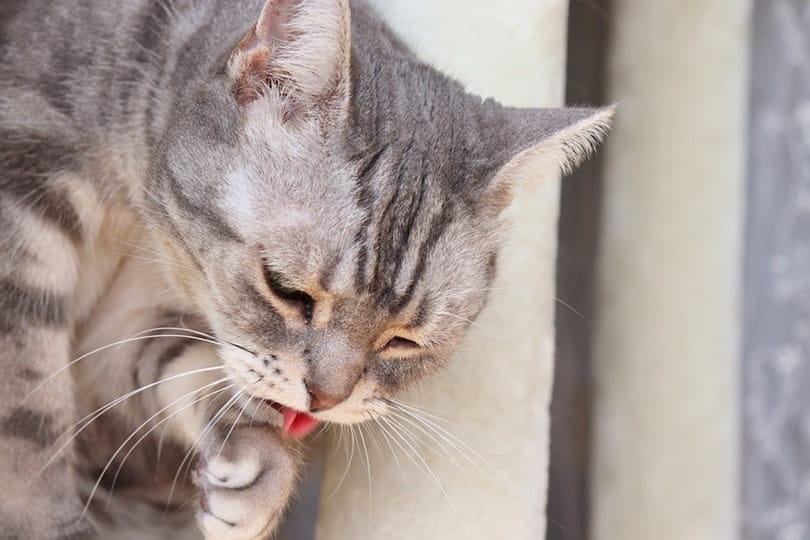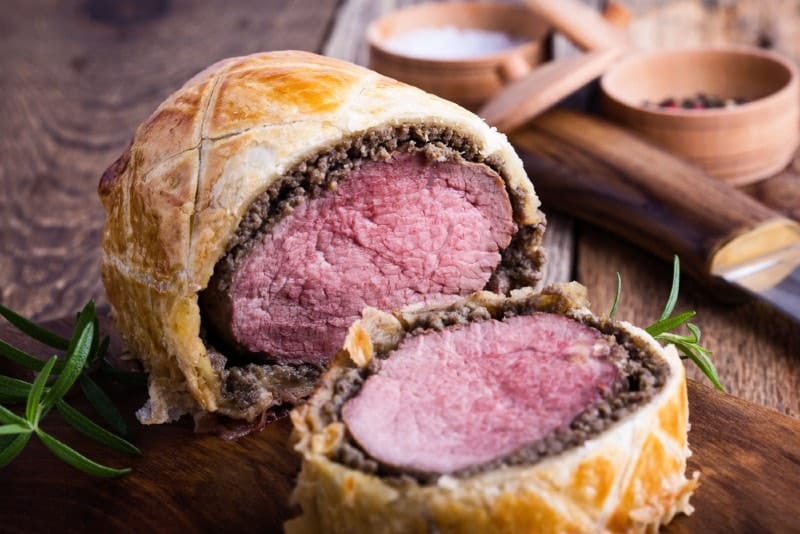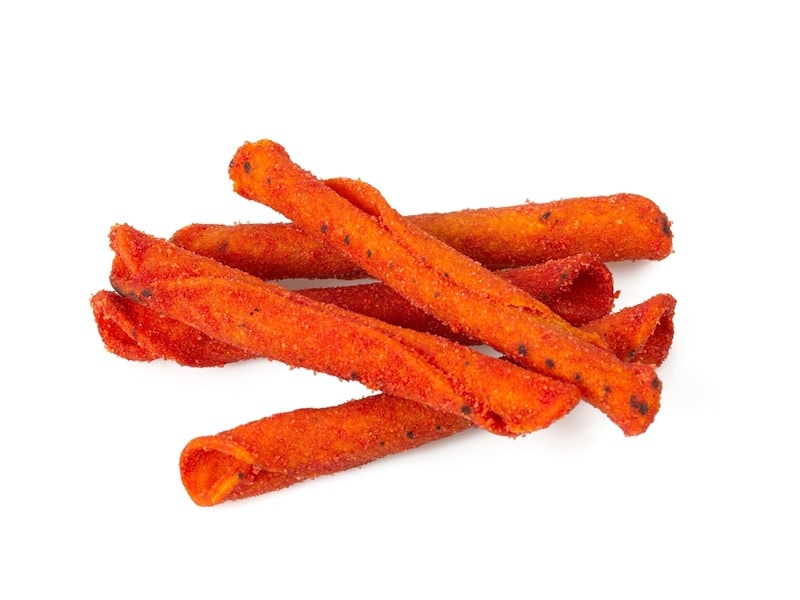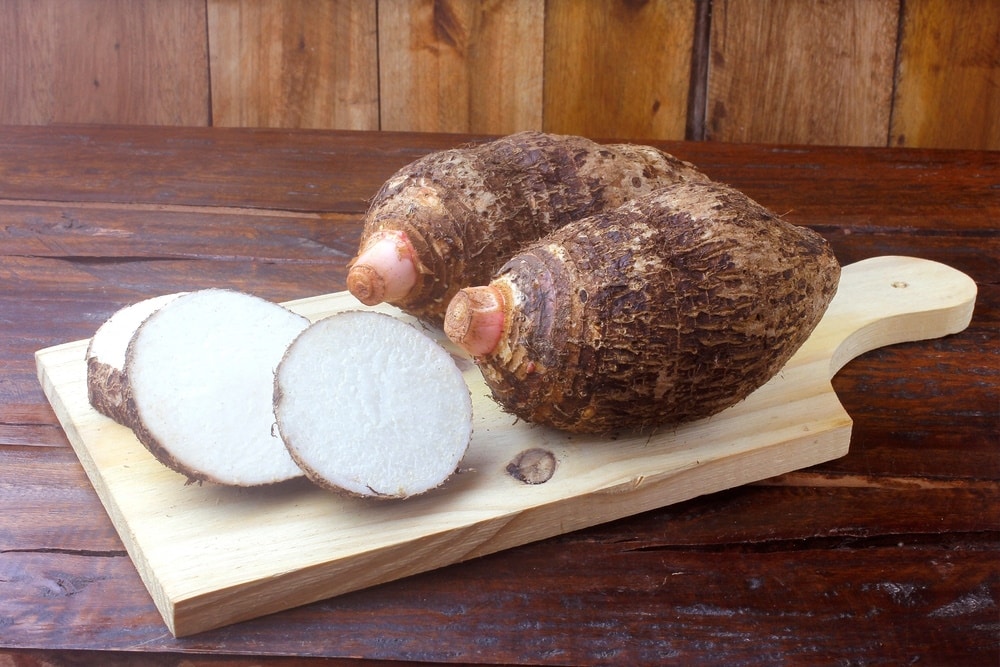Beef Wellington is a popular dish for the holidays or dinner parties. It is an impressive dish to make, and you may want to share it with your cat. However, Beef Wellington isn’t safe for cats to eat. While it heavily consists of meat, some components make it unhealthy for cats and can make them sick.
So, it’s best to reserve Beef Wellington for humans and have some safe alternatives at hand if your cat starts begging for a piece.
Why Cats Shouldn’t Eat Beef Wellington
Several ingredients used in Beef Wellington are unsafe for cats. First, this dish contains a lot of salt. The beef is heavily seasoned, and it also has seasoned mushrooms and prosciutto. While cats need sodium to maintain daily bodily functioning, too much salt can lead to salt poisoning. Cats affected by salt poisoning may experience vomiting, diarrhea, lethargy, weakness, dehydration, and excessive thirst.
Another component of Beef Wellington to consider is the duxelles. This mushroom mix typically contains shallots or onions. All members of the allium family are toxic to cats, and eating too much can damage red blood cells and lead to anemia.
Beef Wellington is also seasoned with herbs and spices that can cause an upset stomach for cats. Ingredients like black pepper, mustard, and chives may be difficult for cats to digest and cause diarrhea or vomiting.
Lastly, the puff pastry wrapped around Beef Wellington isn’t healthy for cats. While cats can eat carbohydrates in moderation, puff pastry doesn’t have any significant health benefits. It contains a lot of butter and has very little nutritional value.

Cat-Safe Beef Wellington Ingredients
Beef Wellington is made up of many ingredients, and there are several that are safe for cats to eat. So, if you’re preparing this dish, you can set aside a small portion of ingredients that you can feed as treats to your cat.
Beef
Fully cooked, unseasoned beef is safe for cats to eat. So, before you wrap a Beef Wellington, you can cut off a small piece of beef and cook it thoroughly without any oil or seasonings. Beef is an excellent source of B vitamins, iron, and niacin. It also contains taurine, which is an essential amino acid that cats need for healthy daily living. Taurine deficiencies can lead to significant avoidable health issues, like feline central retinal degeneration (FCRD) and dilated cardiomyopathy (DCM).
Eggs
Cooked eggs are safe for cats to eat as an occasional treat. Eggs are a good source of protein and fat, and you can remove the yolk if you’d prefer to reduce the amount of fat your cat eats. Make sure to fully cook the egg before feeding it to your cat. Undercooked and raw eggs can be infected by salmonella and cause food poisoning.
Potatoes
Beef Wellington can be served with a side of roasted potatoes. Cats can enjoy small quantities of unseasoned, peeled potatoes that have been fully cooked. Just keep in mind that potatoes should only be given as treats as they don’t really have much nutritional value for cats.

Conclusion
Beef Wellington isn’t a healthy or safe food to feed cats. It contains a lot of sodium and other unhealthy ingredients, like shallots and puff pastry. Fortunately, there are several ingredients in Beef Wellington that cats can eat if they’re prepared correctly. So, if you are making Beef Wellington from scratch, you can set aside a few ingredients and cook them thoroughly so that your cat can enjoy some special treats while you prepare this special dish.
See Also:
Featured Image Credit: istetiana, Shutterstock












